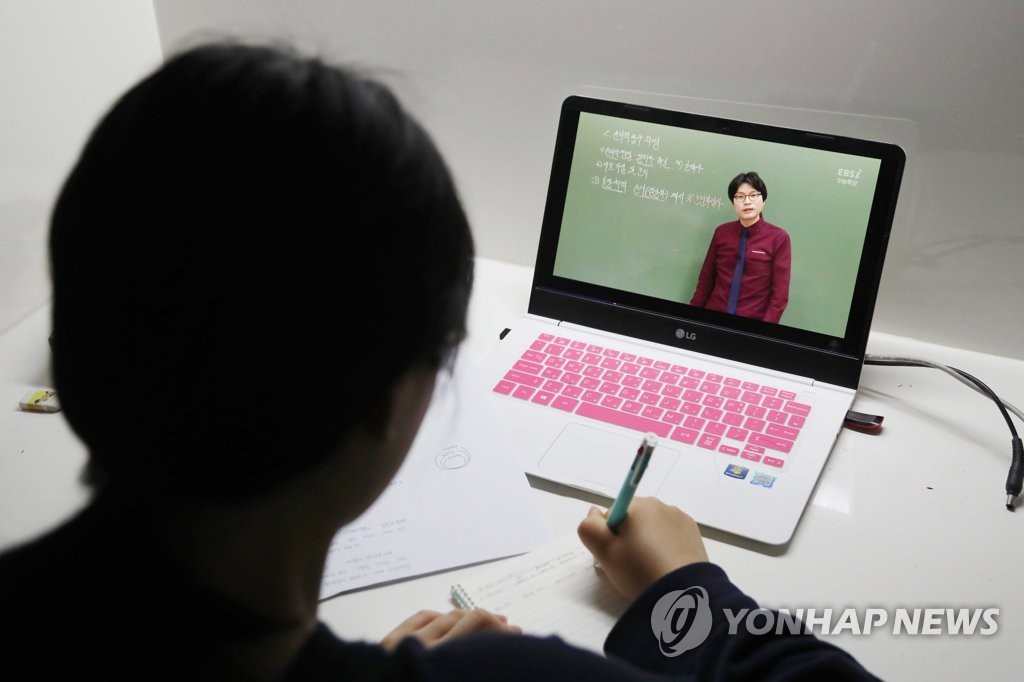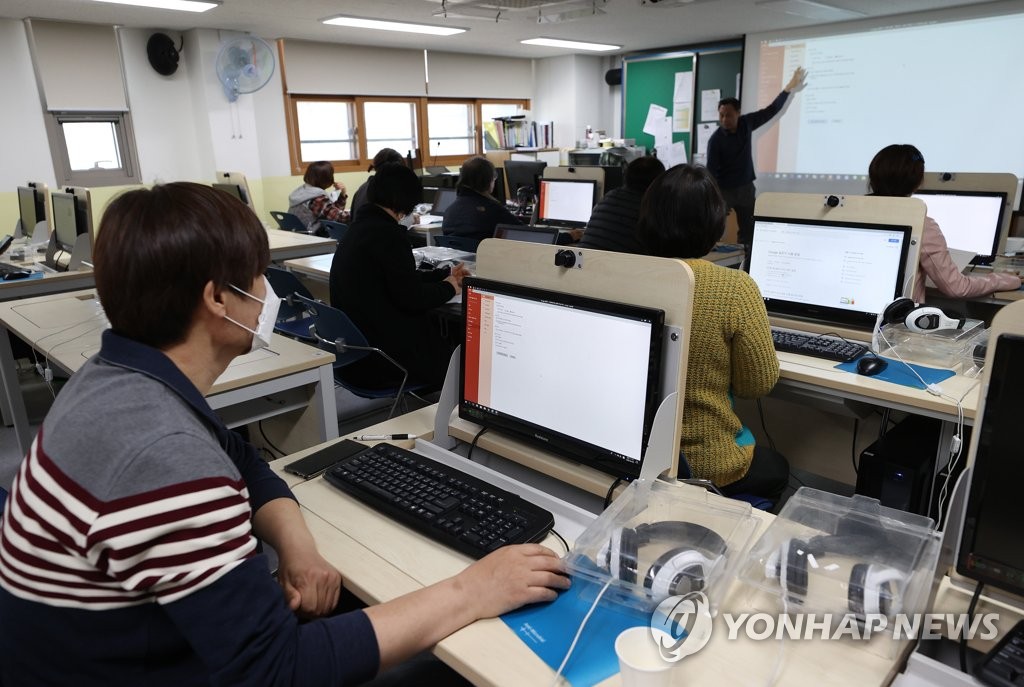- California Assembly OKs highest minimum wage in nation
- S. Korea unveils first graphic cigarette warnings
- US joins with South Korea, Japan in bid to deter North Korea
- LPGA golfer Chun In-gee finally back in action
- S. Korea won’t be top seed in final World Cup qualification round
- US men’s soccer misses 2nd straight Olympics
- US back on track in qualifying with 4-0 win over Guatemala
- High-intensity workout injuries spawn cottage industry
- CDC expands range of Zika mosquitoes into parts of Northeast
- Who knew? ‘The Walking Dead’ is helping families connect
S. Korean schools to resume classes online as virus woes linger
In an unprecedented plan, middle schools and high schools in South Korea are set to open online on Thursday as students stay home to avoid the coronavirus that has infected more than 10,000 here.
The government had earlier postponed the new school year, which usually starts in March, by five weeks to April 6. The plan was once again updated as unexpected cluster infections broke out in various parts of the country.
Last week, the government announced plans to first resume online classes for seniors at middle schools and high schools before expanding the remote learning program to other graders.
Grades 1 and 2 at middle schools and high schools as well as grades 4 to 6 at elementary schools will begin the new semester next Thursday. Grades 1 to 3 at elementary schools will start taking online classes from April 20, while the national college entrance exam has been pushed back by two weeks to Dec. 3.
Classes at kindergartens and child care centers have been indefinitely postponed.
Schools are expected to carry out remote learning through various approaches, such as classes involving real-time interaction, using online lectures pre-recorded by the national educational TV channel or giving projects and homework to students.


Seo Chae-yeon, a senior at Seoul Girls High School in the western district of Mapo, prepares for the new school year by taking online lectures at home on April 8, 2020. (Yonhap)
A tough trial-and-error phase is likely as the country faces cultural and technical hurdles to adjust to its first-ever nationwide remote learning.
A preliminary poll by local education offices, for instance, found that there were 223,000 students nationwide who did not have devices for online learning. The number may grow when factoring in families where gadgets would have to be shared among children.
The education ministry said it has secured 321,000 devices for students, which will be primarily rented out to students in low-income households.
Still, some have highlighted possible lapses in supervision, especially for students who are not familiar with use of tech gadgets or do not have adults to help them get used to online classes.
An organization representing parents sent a letter to the minister earlier this week, suggesting the government have lecturers or college students help these students.
Technical difficulties, such as managing and distributing educational materials and security issues, are also expected to appear in the first few days, or weeks, of classes.
Some schools in the United States that have started online classes have banned use of digital platforms, like Zoom, due to security concerns.
Teachers are expected to go through a sharp learning curve themselves as they prepare for online teaching, regardless of their tech savviness or skills in using digital tools.
The government acknowledged the concerns, but geared up with optimism.
“Resuming school online is a new road we’ve never walked, we are in fact opening a new road,” Prime Minister Chung Sye-kyun told a press briefing on Wednesday.
“Extending the school closure would be the way to take to evade responsibility and numerous difficulties … (but) we opted for online classes as this is the second best plan,” the prime minister said, “We will aim to make sure remote learning goes well but ultimately we’ll do our best to stabilize the COVID-19 (pandemic) so our children can go to school.”












